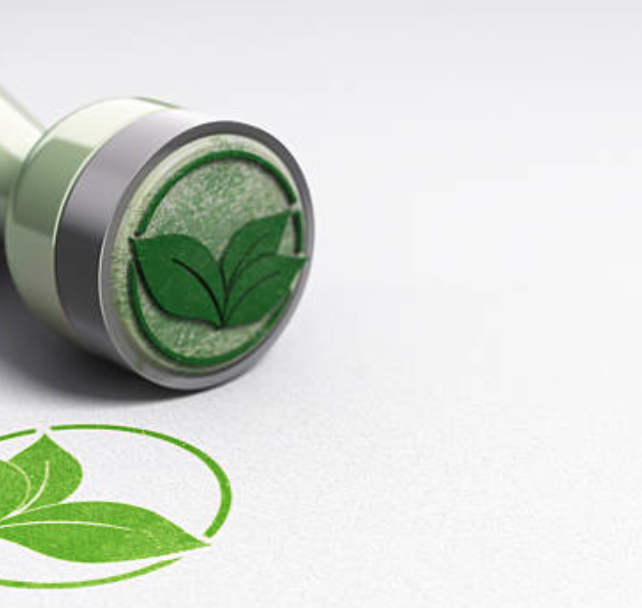Why Bill C-59 is Our Friend…Not Your Foe
Note: Canada’s leading authority on Greenwashing, Ivey Business School associate professor and Greenwash Action Lab founder, Wren Montgomery, penned this article before the budget moved to largely repeal Bill C-59 which bans greenwashing, a bill supported by a whopping 93% of Canadians. (For the record, that’s arguably a higher level of support amongst Canadians for anything other than those who favoured the Jays over the Dodgers).
At the Clean50 Summit in October I had the utter delight of meeting many other like-minded professionals and being inspired and motivated by all that they do. But to be honest, as a greenwashing researcher and someone deeply steeped in the fight to stop it, one aspect of the day left me feeling rather deflated amidst all the fun and celebrating.

It was Bill C-59. Canada’s new anti-greenwashing law.
Personally, I think it’s a huge win for a clean economy in Canada, and for the global fight against misinformation that has effectively delayed vital progress on climate action. But around the room I heard fear and a lot of complaints. I even heard a lot of misinformation that is being perpetuated by greenwashers in our national media being repeated as fact.
Let me explain why I think C-59 is the new best friend you didn’t know you had, and why I hope you see the power in it and embrace it rather than believing and repeating the anti-C-59 rhetoric.
First, I heard a lot about it being complicated. It is, that’s the point.
Well, yes, you’re right here. It should be hard to make claims around a topic – the environment – that we know Canadian consumers are looking for but on which they can be easily misled. Making it harder for us all to make these claims is actually the point. The space was obfuscated by misinformation, meaning that markets and stakeholders couldn’t figure out who was genuinely green and who wasn’t. Greenwashing is anti-competitive, meaning you weren’t getting the value you deserved for your own genuine sustainability efforts. Bill C-59 is intended to improve the value proposition for being sustainable and to give genuine companies, like yours, a competitive advantage. But, if you want that value, you need to do some work to separate your genuine claims from the BS.

If it makes it any easier to do that hard work, let me assure you, if you find this challenging just imagine how challenging it would be if you weren’t actually doing something real and sustainable before C-59 came into play. Imagine how hard this is for firms that were purely greenwashing and are now starting from zero (or empty “net zero” claims as the case may be). Think of C-59 as speed bump for you but a major off-ramp for the firms that were stealing your market share (and your customers, employees, and investors) by greenwashing.
Second, I heard a lot about changing it. We shouldn’t, not right now.
Some of you were coming from the other side and wanted a more stringent greenwashing law. Well, yes, me too. But, no, not likely to happen soon. While I wasn’t involved in the political process of passing it (some other Clean50 Honourees were) getting a new greenwashing Bill through parliament in the current global context is going to be even more complex than it was two years ago. Let’s congratulate ourselves that we have a world-class law that other countries are starting to emulate, just look to Germany’s recent laws that replicate many of the key points of C-59.
Some others wanted a “climate misinformation” law, but hadn’t yet dug into what we do have. At Climate Week, Toronto Councillor Dianne Saxe shared that C-59 has helped Toronto pass its restrictions on fossil fuel ads on public transit. I encourage folks in this bucket to kick the tires of C-59, you may just find it can be more useful than you thought.
Third, I heard a lot about greenhushing. That’s silly, don’t do it.
Some of you with whom I spoke stated that firms that were doing good things (maybe even you!), might now stay quiet and not share their sustainability achievements. This is termed “greenhushing” or “brownwashing” (the longer standing academic term). Well, as one of the few people in the world studying this phenomenon let me tell you the bad news: If you are now claiming you are just going to greenhush you might have been part of the problem. If you didn’t have the evidence to back up those claims to begin with (as C-59 requires), and substantiation is now really difficult for you, you likely were doing a little greenwashing yourself.

Sorry, I know that’s a tough pill to swallow, but even if you had the best of intentions when you claimed to be greener than competitors and really believed and knew it deep down, without something concrete to back that up you were playing with common greenwashing tactics “vague claims” and “no evidence”. You were also exacerbating the hand waving that has caused Canadians to lose trust in sustainability claims more broadly. So, if that was you, to be frank, being quiet as you dig up the receipts is a good thing. I am sure you can bounce back soon with something concrete to show us all. Afterall, there was a really good reasons so many firms were greenwashing (50%+ by many good counts), there is competitive advantage to be had.
What about the firms, many fossil fuel companies and big banks among them, that weren’t doing much of anything green, but claiming they were, and now tell us very publicly that they are now “greenhushing”? Nope, not on my watch. They were simply greenwashing to begin with and C-59 shut them up. No greenhushing tears from me, crack the champagne!

So, my greenwashing advice from Clean50?
You are all doing incredible things. Just back them up and pull up your socks a tad. Make clear, evidence-based, and well substantiated claims about what you are actually doing. But don’t make claims about things you can’t prove and don’t have evidence for. Hot tip: if it includes general terms like “green”, “eco”, and “sustainable” and it is broad and company-wide, you need to look extra hard at it and ask yourself the tough questions. Lucky for you we have put up free research-based tools and peer-reviewed papers on the Greenwash Action Lab to help you do just that.
Then, get out and fight to protect C-59 from those who are trying hard to convince you it is bad.
Is it perfect? No.
Is it easy? No.
Is it a huge step to making Canada’s economy cleaner and greener? Absolutely.














